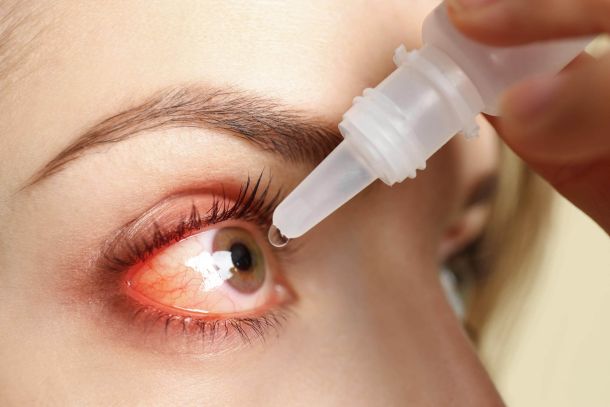Infant allergies: how to recognize and treat them


Eva Zakharova
Allergies in newborns are a common problem that can cause concern for parents. In this article, an experienced allergist will explain in detail the causes, symptoms, and treatment of allergies in infants.
What are allergies and how do they manifest themselves in babies
An allergy is a reaction of the body's immune system to certain substances called allergens. Allergies in a newborn baby can appear in different forms, including skin allergies, in the form of food allergies, as well as allergies to medications.
Causes of allergies in newborns
The main causes of allergies in the infant include genetic predisposition, improper feeding and lack of hygiene. Also an important factor is the state of the baby's gut and immunity.
Symptoms of allergies in infants

Skin manifestations of allergies
How do newborn allergies look like on the face? Different allergic rashes, such as redness, itching, rashes on the cheeks, stomach, back, or butt, can appear on an infant's skin.
- Atopic dermatitis is a chronic inflammatory skin condition that often occurs in infants. Symptoms include red spots, itching, flaking, and moist crusts on the skin.
- Urticaria is a skin reaction that appears as redness, itching, and swelling. In a one-month-old baby, hives can be caused by food allergies or contact with allergens.
- Angioedema is a rare but serious condition that can be life-threatening for an infant. It is characterized by the rapid development of swelling of the skin, mucous membranes and subcutaneous tissue. It is important to see a doctor quickly for help.
Food allergy

Food allergies in an infant can manifest through a variety of symptoms, including digestive disorders, skin manifestations and even anaphylactic shock.
- Vomiting and diarrhea can be symptoms of food allergies in an infant 1 month of age or older. They can occur as a result of intolerance to certain foods.
- Colic and bloating are other symptoms of food allergies in an infant that may indicate intolerance to certain foods or components of breast milk.
Medication allergy
Allergies to medications in infants under one year of age can manifest as skin rashes, itching, swelling, vomiting, and even anaphylactic shock.
- Allergies to antibiotics can cause skin rashes, itching, swelling, vomiting, diarrhea, and even anaphylactic shock. If your child has these symptoms after taking antibiotics, you should see a doctor immediately.
- Allergies to antiviral medications can manifest as skin rashes, itching, swelling, vomiting, and diarrhea. If your child has these symptoms after taking antiviral medicines, you should contact your doctor.
Allergies to dust and pollen
Allergy to dust and plant pollen can also cause an allergic reaction in the baby.
- Plant pollen allergy can cause symptoms such as itching, watery eyes, runny nose, skin rashes, and swelling. It is important to identify the allergen and take steps to eliminate it.
- Allergies to house dust can cause symptoms such as itching, skin rashes, runny nose and coughing. To reduce the allergic reaction, it is important to clean and damp the room regularly.
Diagnosis of allergies in infants

To determine the cause of an allergy in a one-month-old or older baby, you need to see an allergist. The doctor will examine and, if necessary, prescribe tests and examinations.
Analyses and tests
- The blood test for immunoglobulin E makes it possible to determine the presence of antibodies to allergens and identify the possible causes of allergy in the baby.
- Skin scrapings may be ordered to detect infectious agents or an allergic reaction to certain allergens.
- Provocative tests may be used to determine the specific allergen causing the allergic reaction in the baby.
Treatment of allergies in infants

The basic principle of treating allergies in newborns is to eliminate contact with the allergen. It is also important to strengthen the child's immune system and watch his diet.
Medication
Antihistamines such as Phenystil or Zyrtec help to reduce allergy symptoms and relieve the infant's condition. However, consultation with a doctor is necessary before using such medications.
In cases of severe skin allergies, the doctor may prescribe hormonal ointments and creams, such as hydrocortisone or Advanthan. These medicines help reduce inflammation and itching.
For food allergies in an infant, the doctor may prescribe medications to stabilize the gut, such as probiotics, prebiotics, and enterosorbents. It may also be necessary to adjust the mother's diet or replace the formula for artificial feeding.
Preventing allergies in newborns

The following guidelines should be followed to prevent allergies in newborns:
- Breastfeeding for the first 6 months of the baby's life;
- Introducing a complementary food as recommended by the doctor;
- Keeping the air in the room clean and moist;
- Exclusion of contact with allergens and potentially dangerous substances;
- Contacting the doctor in a timely manner when allergy symptoms appear.
Allergies in infants can manifest themselves in different forms and have different causes. Identifying the allergen and eliminating contact with it are the main methods of treating allergies. It is important to see an allergist in a timely manner to make a diagnosis and prescribe a suitable treatment. Following recommendations on allergy prevention and taking care of your child's health will help avoid the development of allergic reactions and keep your baby healthy.
New materials
Popular Articles
We recommend reading
Contact us in the Contact Us section to ask questions, offer ideas, or for more information about our allergy resource.
Our articles are your trusted source of allergy knowledge. Learn how to make life with allergic reactions easier on our specialized portal.
©
Lechenie-Allergii.com. All rights reserved.
© Lechenie-Allergii.com. All rights reserved.
The information on this site is for informational purposes only and is not a substitute for professional medical advice. We recommend consulting with qualified medical professionals for accurate information and advice.
 English
English  Українська
Українська  Русский
Русский 









